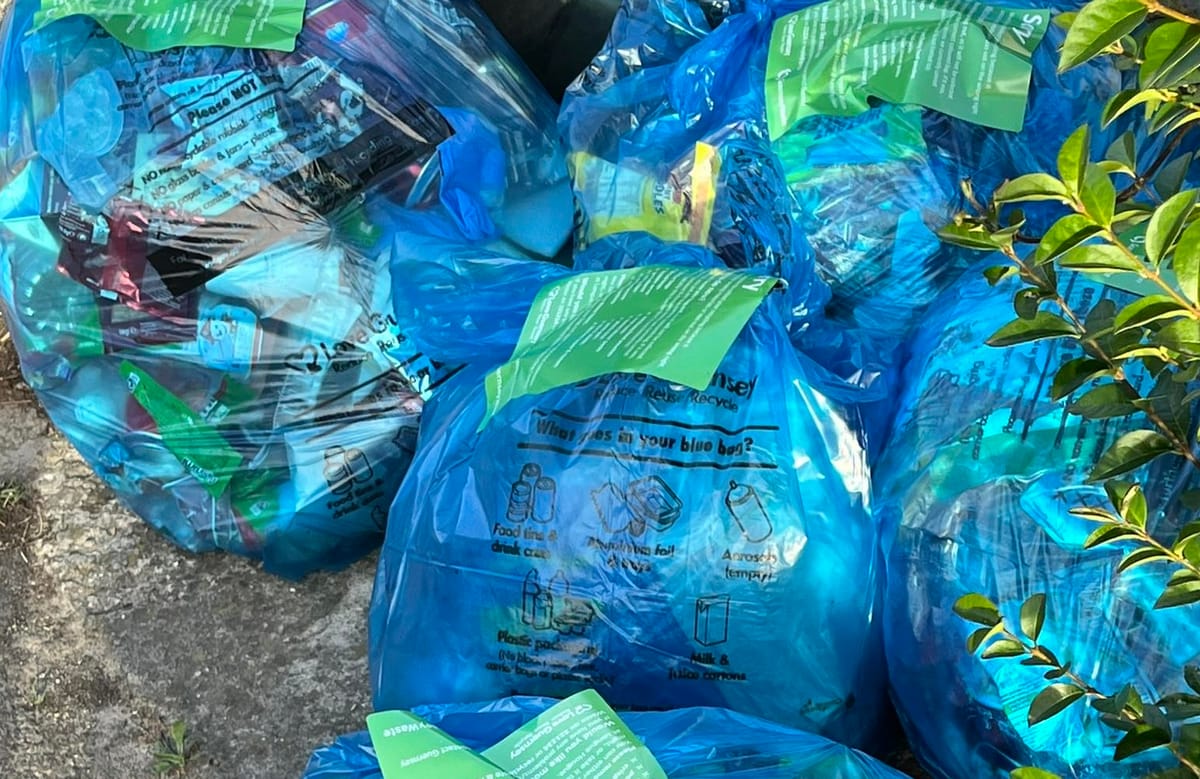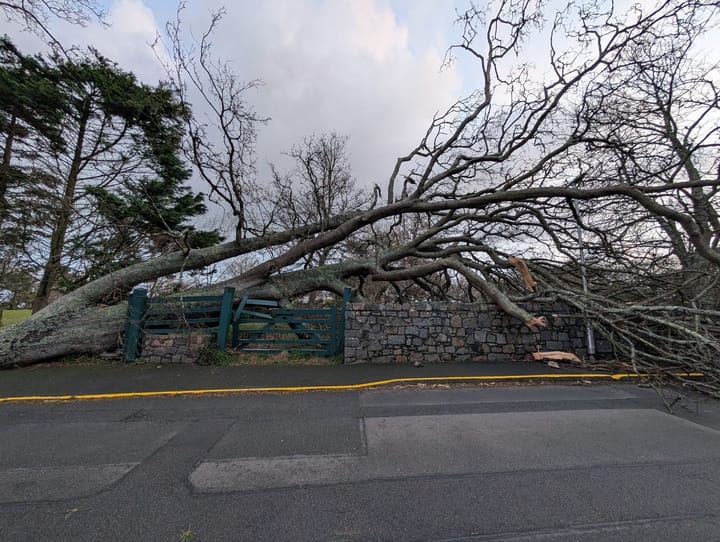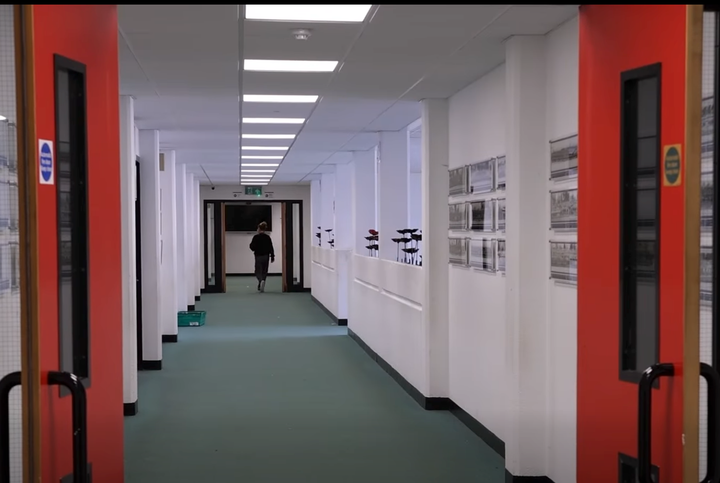Households urged to improve recycling practices to combat contamination

- Households are advised to be cautious when recycling plastics to prevent bags from being left uncollected.
- Only specific plastic items such as bottles, tubs, pots, and trays can be recycled; thin film plastics are considered contamination.
- Contaminated items, including dirty containers and film plastics, will not be collected and lead to additional sorting costs.
- Contractors are enforcing stricter rules by leaving behind bags that contain non-recyclable items.
- The message is clear: thin film plastics cannot currently be recycled; households are encouraged to include only acceptable materials in blue bags.
Households in Guernsey are being reminded to take greater care with their recycling practices, particularly with plastic items disposed of in kerbside recycling bags.
The local authorities state that while items such as plastic bottles, tubs, pots, and trays are included in recyclable plastics, thin film plastics, including carrier bags and crisp packets, cannot currently be recycled.
Rachel Lowe, Guernsey Waste contracts and compliance manager, noted that thin film plastics, when included in the blue bags, are considered contamination.
"This classification extends to pet food pouches, biscuit wrappers, cling film, and peel-off lids. Dirty containers with leftover food also add to the contamination issue, potentially leading to a lack of collection by waste contractors.
Mrs Lowe emphasised, “As far as these film items are considered, doing the right thing should not cost households any more. It will actually reduce the overall cost to islanders.”
Despite technical recyclability, the current processing capabilities in the UK cannot handle all types of thin film plastics, creating a backlog and cost issues that Guernsey Waste aims to address.
Parish collection contractors have begun clamping down on contaminated materials. Bags containing thin film plastics have been left uncollected, encouraging households to reconsider what they place in their recycling.
According to Mrs Lowe, “This is absolutely not about making life difficult for households. Most people are genuinely trying to do the right thing. Unfortunately including film with other items in kerbside bags is the wrong thing, and causes more harm than good.”
She added that leaving behind wrongly placed bags is vital to breaking the cycle of contamination. Households often assume they are recycling correctly if contaminated bags are not identified during collection.
The local authorities acknowledge that misleading information on some thin film packaging suggests these materials can be recycled, contributing to recycling confusion among residents.
"This is not just an issue for Guernsey. Although thin film plastics are technically recyclable, the processing capacity in the UK simply does not exist to deal with all this packaging," stated Mrs Lowe.
Clear recycling bags tend to encounter fewer contamination issues.
However, residents are advised to avoid including tissues and kitchen roll in their recycling as these cannot be processed. They should instead be placed in general waste.
For further clarification, the public is welcome to reach out to Guernsey Waste via contact number 221234 or by email at recycle@gov.gg.
What to watch out for and what the options are:
Crisp packets: Probably the number one thing people get wrong. Guernsey Waste cannot currently recycle any “thin film” plastic packaging, like crisps packets, biscuit wrappers, pet food pouches, peel off lids, and carrier bags. For now, these must go in with General Waste.
Wine corks: Can be home-composted, along with kitchen and garden waste, otherwise need to be disposed of along with General Waste, not in your recycling.
Pringles tubes: Like some other snack tubs, the older style packaging had a metal base, making it difficult to recycle as a single item. They are now more likely to be all cardboard, which can just go into your Clear Bag. Any that do still have a metal bottom, you can remove that using a can opener to cut the cardboard, and pop the base in your Blue Bag. Plastic lids also go in your Blue Bag, but any peel-off thin plastic seals will need to go in the General Waste.
Small pieces of foil (e.g. Oxo cube covering): Small bits of foil are really difficult to separate out in processing, so if you can scrunch them together in larger foil items they can go in the Blue Bag.
Wine bottle metal caps: Can go back on the empty bottle and will be separated by the glass recycling plant. Or separate them and pop the lid in your Blue Bag, and the bottle in your Glass Bag.
Hot Chocolate tubs: Likely to be similar to the older style snack tubes, with a metal bottom. Separate the base using a can opener to cut around the cardboard, and the metal goes in the Blue Bag and the tube in your Clear Bag.




Comments ()